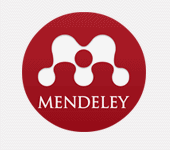DIGITAL PROSECUTION MANAGEMENT IN THE ERA OF SOCIETY 5.0: A STUDY OF THE YOUNG MEDAN PROSECUTION COMMUNITY
Abstract
This study aims to analyze the digital da'wah management practices implemented by the Medan Muda Berdakwah community, a representative of an urban youth da'wah movement that adapts to socio-technological challenges. Using a descriptive qualitative approach, data were collected through in-depth interviews, direct observation, and digital documentation, and analyzed using thematic analysis techniques. The results indicate that this community implements a structured digital da'wah strategy through three main stages: planning based on social trends and the Islamic calendar; implementing contextual, visual, and communicative content through Instagram, TikTok, and YouTube; and evaluating using data insights and audience engagement. Two-way communication practices and internal-external collaboration are key elements in strengthening the loyalty of digital congregations and creating a da'wah narrative that is moderate, inclusive, and relevant to the spiritual needs of digital natives. This study emphasizes the importance of integrating theological competence, technological skills, and communication strategies in managing digital da'wah. These findings provide theoretical contributions to the development of a network-based da'wah management model and provide practical implications for religious organizations in designing sustainable digital da'wah strategies amidst the complexities of the Society 5.0 era.
Keywords
Full Text:
PDFReferences
Afandi, A., & Baharudin, A. (2022). Interaksi Dai Milenial di TikTok: Studi Strategi Komunikasi Dakwah Dua Arah. Jurnal Dakwah Digital, 5(1), 34-50. https://doi.org/10.32509/jdd.v5i1.2022
Ahmad, R., Fatmawati, & Lestari, D. (2022). Strategi Manajemen Konten Dakwah Digital Berbasis Tren Sosial. Jurnal Dakwah dan Komunikasi Islam, 6(1), 45-60. https://doi.org/10.24252/jdki.v6i1.2022
Azra, A. (2022). Transformasi Dakwah di Era Teknologi Informasi. Bandung: Remaja Rosdakarya.
Braun, V. & Clarke, V. (2006). Using thematic analysis in psychology. Qualitative Research in Psychology, 3(2), 77-101.
Creswell, J. W. (2016). Research Design: Qualitative, Quantitative, and Mixed Methods Approaches (4th ed.). Sage Publications.
Dalimunthe, M. A., Pallathadka, H., Muda, I., Devi Manoharmayum, D., Habib Shah, A., Alekseevna Prodanova, N., Elmirzayevich Mamarajabov, M., & Singer, N. (2023). Challenges of Islamic education in the new era of information and communication technologies. HTS Teologiese Studies / Theological Studies, 79(1). https://doi.org/10.4102/hts.v79i1.8608
Dalimunthe, M. A., Ritonga, A. R., Dalimunthe, N. F., & Veronica, A. (2025). Effective Communication in Character Education: A Pathway to Strengthening Nationalism of SMP Swasta Islam Terpadu Jabal Noor Student. Langgas: Jurnal Studi Pembangunan, 4(1), 13-22.
Dalimunthe, M. A., Ritonga, A. R., & Ananda, S. (2025). The Role of Opinion Leaders in Bullying Prevention: Evaluating the Roots Program in SMA Negeri 19 Medan Through the Lens of Two-Step Flow Communication Theory. Komunika, 21(01), 33-40.
Fauzan, I., Arifin, A., Dalimunthe, M. A., & Rahmadani, S. (2023). The configuration of ethnic and religious relations towards the 2024 general election: A case study in Medan, Indonesia. Multidisciplinary Science Journal, 6(2), 2024006. https://doi.org/10.31893/multiscience.2024006
Fauzi, A., & Zakaria, M. (2023). Social Listening Strategy dalam Perencanaan Dakwah Digital: Studi Kasus Komunitas Muslim Muda. Jurnal Komunikasi Islam, 13(1), 55-70. https://doi.org/10.15642/jki.2023.13.1.55-70
Indainanto, Y. I., Dalimunthe, M. A., Sazali, H., Rubino, & Kholil, S. (2023). Islamic Communication in Voicing Religious Moderation as an Effort to Prevent Conflicts of Differences in Beliefs. Pharos Journal of Theology, 104(4). https://doi.org/10.46222/pharosjot.104.415
Nurdin, M., & Maulida, F. (2021). Dakwah Milenial di Komunitas Pemuda Hijrah: Strategi, Tantangan, dan Manajemen. Jurnal Ilmu Dakwah: Academic Journal for Homiletic Studies, 41(2), 123-138. https://doi.org/10.21580/jid.v41i2.7963
Patton, M. Q. (2015). Qualitative Research & Evaluation Methods (4th ed.). Sage Publications.
Sikumbang, A. T., Dalimunthe, M. A., Kholil, S., & Nasution, N. F. (2024). Digital Da'wah Indonesia Ulema in the Discourse of Theology. Pharos Journal of Theology. 105(1). 1-14. https://doi.org/10.46222/pharosjot.1051
Susanto, E. (2020). Manajemen Dakwah di Era Digital. Jakarta: Kencana.
Yusof, M., & Azmi, M. (2021). Collaborative Strategies of Muslim Influencers in Strengthening Digital Da'wah in Malaysia. Journal of Islamic Communication and Media, 3(2), 98-115. https://doi.org/10.37273/jicm.v3i2.2021
Zulkifli, M., & Mulyadi, R. (2023). Strategi Engagement dalam Dakwah Digital: Studi Kasus Komunitas Islamic Creator Hub. Jurnal Komunikasi Islam, 13(2), 102-117. https://doi.org/10.15642/jki.2023.13.2.102-117
DOI: http://dx.doi.org/10.30829/jai.v14i2.25612
Refbacks
- There are currently no refbacks.
Copyright (c) 2025 Ali Ansor Siregar, Abdurrahman Abdurrahman2

This work is licensed under a Creative Commons Attribution-ShareAlike 4.0 International License.





